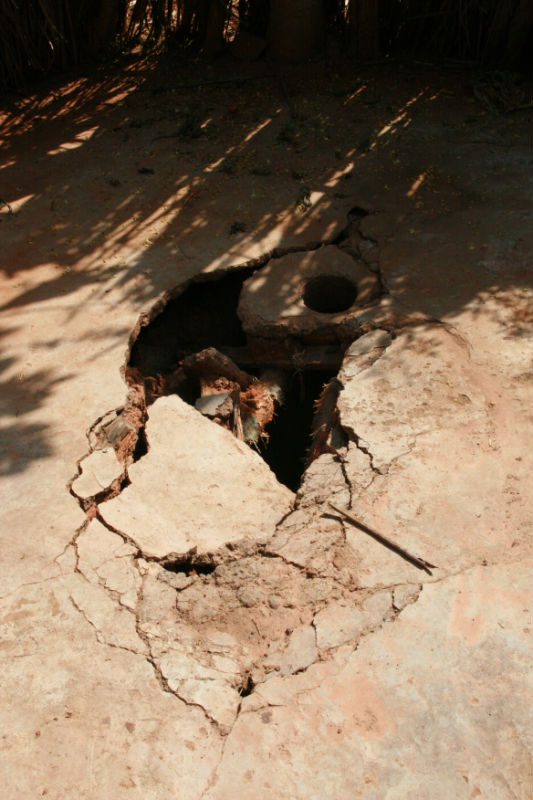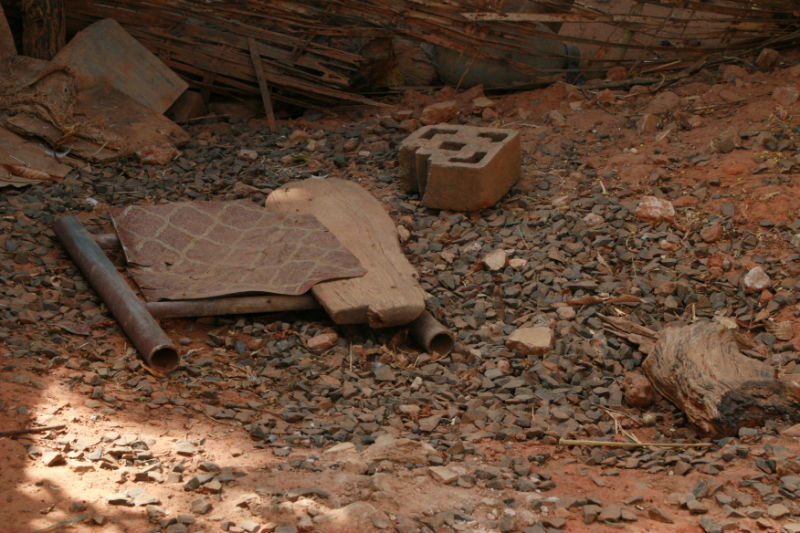Location
Coumba Diouma, Vélingara, Kolda, Senegal
Community Description
Coumba Diouma is a small rural subsistence farming village located about 15 km east of the town of Vélingara in the department of Vélingara, region of Kolda, Senegal. The village is located about 2 km off the national road making it close to other communities but far enough off the dirt path that it is sometimes forgotten or left out by other organizations working in the area.
Roughly 325 people live in Coumba Diouma without electricity or running water. Over half are children.
The region of Kolda, known as the peanut basin, is the poorest in Senegal. After the world price of peanuts plummeted in 2008, Coumba Diouma was directly affected. Peanuts no longer bring in enough money to support families and the village has hit upon very hard times.
 Sanitation is a major contributor to illness in Coumba Diouma. Most people understand the need for clean water and latrines. However, the availability of these two resources is scarce and the people lack the means to make them consistent. As a result, diseases related to sanitation are prevalent.
Sanitation is a major contributor to illness in Coumba Diouma. Most people understand the need for clean water and latrines. However, the availability of these two resources is scarce and the people lack the means to make them consistent. As a result, diseases related to sanitation are prevalent.
There are only four cement-enforced latrines in the entire village. All others are either collapsing or have no cement reinforcement. As a result, most people use the woods or fields, as there is no other option. Often they do not bring water with them and do not wash their hands.
Project Description
This project is to build 10 USAID-approved pit latrines in the community.
Each will consist of a 2-meter deep pit, 1 meter in diameter, with PVC piping to aid with ventilation, and fly trapping to prevent this major carrier of the disease.
Each latrine will be covered by a 2×2–meter rebar-enforced cement platform, which will be constructed on-site.
Each cement platform will have handlebars. When the latrine pit fills up, families will be able to remove the platform, dig a new pit, place the same platform over the new pit, and have a new latrine.
 The project will be managed by the Latrine Committee, which has organized the activities to date. The committee consists of President Alieu Daiw, Secretary Yaro Camara, and Treasurer Amadou Camara.
The project will be managed by the Latrine Committee, which has organized the activities to date. The committee consists of President Alieu Daiw, Secretary Yaro Camara, and Treasurer Amadou Camara.
Arrangements have been made with a mason, who will do the skilled labor and transport the cement, rebar and piping.
Community contributions have already been collected, in the amount of 2 million CFA, about 4.00 USD, per latrine. This will be used to help cover the cost of incidentals.
Each family will be responsible to locate a suitable site, dig the pit, and prepare for the installation. Moreover, each participating family must contribute sand, water, and tools for the cement mixture.
Project funds will be used to pay the mason, and buy cement, rebar, PVC piping, and wire cutters for the rebar.
President Alieu Diaw, as part of an in-kind contribution, will cover the transportation of the materials from Vélingara to Coumba Diouma.
Two health workers, Isotou Konté and Fatoumata Bâ will provide the educational component of the project by going house-to-house as well as to the local primary school to talk about how to care for the latrine, how to wash hands properly after using the latrine, and the importance of always using latrines.
Project Impact
All 325 people living in Coumba Diouma will directly benefit by the building of new latrines and sanitation education.
Peace Corps Volunteer Directing Project
Rachael Honick
Comments
This project will reduce sanitation-related diseases in the village.
The community is fully committed, and is providing a substantial part of the resources, including labor and money. The educational component ensures that the latrines will be properly built and used.
Finally, the project is sustainable, as the design permits the latrines to be moved when necessary.
Dollar Amount of Project
$500.00
Donations Collected to Date
$500.00
Dollar Amount Needed
$0.00 – This project has now been fully funded through the generosity of The Soneva SLOW LIFE Trust as a part of their Clean Water Projects initiative, with the help of friends and family of Peace Corps Volunteer Rachael Honick.
We encourage others to continue to donate using the Donate button below, and we will notify Rachael of your donation. Additional funds will be used to fund the next project by the PCV and/or other projects in the country of service.
This project has been finished. To read about the conclusion of the project, CLICK HERE.